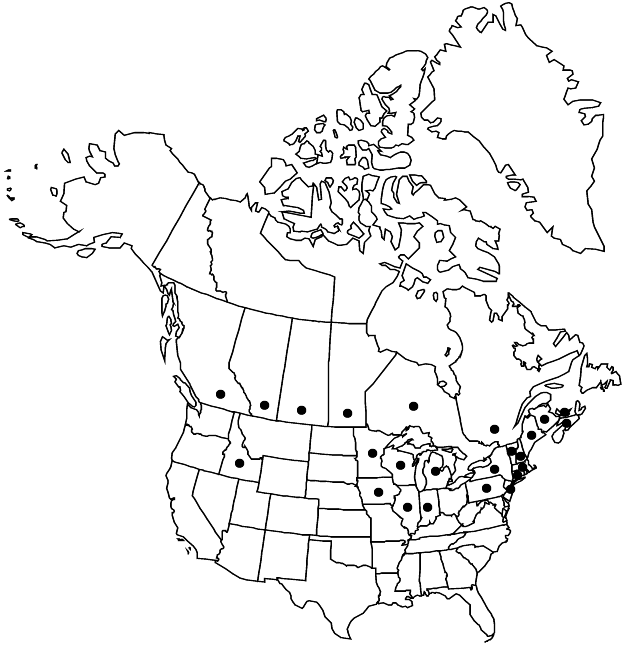Silene chalcedonica
in J. Sturm et al., Deutsch. Fl. ed. 2, 5: 96. 1901.
Plants perennial, coarse, rhizomatous; rhizome branched, stout. Stems erect, few-branched, 50–100 cm, hispid. Leaves rounded into tightly sessile base; blade lanceolate to ovate, 5–12 cm × 20–60 mm, apex acute, sparsely scabrous-pubescent on both surfaces, scabrous-ciliate on abaxial margins and midrib; basal leaf blades broadly spatulate. Inflorescences subcapitate between terminal pair of leaves, 10–50-flowered, congested, bracteate; bracts lanceolate, herbaceous, ciliate. Flowers sessile to subsessile, 10–16 mm diam.; calyx 10-veined, narrow and tubular in flower, clavate in fruit, 12–17 mm, margins dentate, lobes triangular-lanceolate, 2.5–2.5 mm, coarsely hirsute; petals scarlet, sometimes white or pink, clawed, claw equaling calyx, limb spreading, obovate, deeply 2-lobed, 6–11 mm, shorter than calyx, appendages tubular, 2–3 mm; stamens equaling calyx; stigmas 5, equaling calyx. Capsules ovoid, 8–10 mm, opening by 5 teeth; carpophore 4–6 mm. Seeds dark reddish brown, reniform-rotund, 0.7–1 mm diam., coarsely papillate; papillae ca. as high as wide. 2n = 24 (Europe).
Phenology: Flowering summer.
Habitat: Roadsides, waste places, open woodlands
Elevation: 0-300 m
Distribution

Alta., B.C., Man., N.B., N.S., Ont., P.E.I., Que., Sask., Conn., Idaho, Ill., Ind., Iowa, Maine, Mass., Mich., Minn., N.H., N.J., N.Y., Pa., Vt., Wis., Europe.
Discussion
Silene chalcedonica is widely cultivated but rarely escapes and probably does not persist.
Selected References
None.